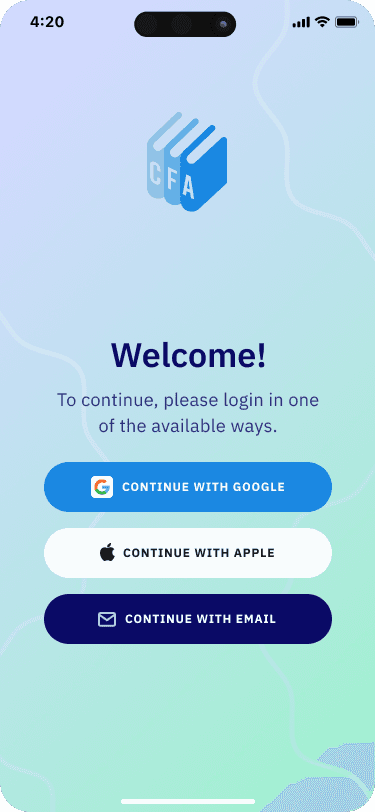In a world obsessed with grinding harder, studying longer, and sacrificing everything at the altar of achievement, we've lost sight of a fundamental truth:
The mind doesn't care about your hustle. It operates on principles far older than your productivity apps.
Your brain has specific ways it wants to learn, retain, and perform.
Yet most of us ignore these biological imperatives, choosing instead to follow industrial-age learning methods that treat our minds like machines.
The result? Countless high-potential professionals burning themselves out, questioning their intelligence, and failing exams they should have passed—all because they're fighting against their own cognitive architecture.
THE ILLUSION OF PRODUCTIVE STRUGGLE
The conventional wisdom around professional exam preparation reads like a masochist's manifesto:
Study until your eyes blur
Sacrifice your weekends
Push through the pain
More hours = better results
But cognitive scientist Dr. Barbara Oakley reveals a different reality: "The brain is not designed for continuous focused learning. It requires strategic oscillation between focus and diffusion."
This isn't just theory—it's neuroscience.
THE FOUR PILLARS OF COGNITIVE MASTERY
Drawing from the LTAR Framework (Learn-Test-Analyze-Revise), we can construct a more sophisticated understanding of how the mind actually masters complex material:
Neural Pattern Recognition (Learn)
Your brain craves patterns
Initial confusion is not just normal—it's necessary
Learning happens in the recovery, not the strain
Active Recall Architecture (Test)
Microtraining sessions create stronger neural pathways than marathon study
Progressive challenge maintains optimal stress levels
The testing effect is more powerful than re-reading
Meta-Learning Analysis (Analyze)
Pattern recognition in your own learning process
Performance analytics reveal hidden strengths
Cognitive load optimization through data
Spaced Repetition Engineering (Revise)
Alignment with natural forgetting curves
Strategic reinforcement at optimal intervals
Building permanent knowledge structures
THE CASE OF THE 50-HOUR EXECUTIVE
Consider Hrishi, a finance professional working 50+ hours weekly while preparing for his CFA. His story illustrates a crucial point about cognitive optimization.
Before MasterCFA he was preparing using traditional methods (weekend only offline coaching claseses). He spent 5-6 hours each on a Saturday & Sunday listening to CFA Coaches teach.
Passive learning in any form whether online or offline yields the same results.
He was 'watching' them teach the CFA level 1 curriculum.
He was 'watching' them solve the CFA Level 1 exam questions on a whiteboard.
He was mentally drained from the travel and non-stop 'watching' of technical content.
So he would come back and chill, as he had already 'studied' 5+ hours, that too on a weekend.
"That's some commitment & discipline" - his friends
He would be busy with work the rest of the week and then repeat the same cycle next weekend.
This was until he gave his first test, scored low, saw a reel from MasterCFA on instagram and downloaded it.
By aligning with his brain's natural learning rhythms, he achieved more with less:
15-60 minute focused microtraining sessions
Data-driven focus area selection
Spaced repetition for retention
The result wasn't just passing—it was mastery achieved with less than half the standard study hours.
THE PSYCHOLOGY OF EFFICIENT LEARNING
Psychologist Anders Ericsson's research on peak performance reveals that excellence is not about quantity of practice, but quality of neural adaptation.
This aligns with what we now know about:
Cognitive Load Theory: The brain's working memory has strict limits
Spacing Effect: Information is better retained when learned over time
Testing Effect: Retrieval practice strengthens memory more than review
Flow State Dynamics: Optimal learning occurs in specific mental states
BREAKING THE INDUSTRIAL LEARNING PARADIGM
Our current approach to professional education still reflects factory-model thinking:
Standardized time blocks
Linear progression
Volume-based metrics
One-size-fits-all pacing
But as neuroscientist David Eagleman notes: "The brain operates more like a garden than a computer—it requires cultivation, not programming."
THE DECISION POINT
You stand at a crossroads:
→ Continue fighting against your brain's natural learning mechanisms
→ Align your study approach with cognitive science
Ask yourself:
What if passing wasn't about studying more, but studying right?
What could you achieve if your learning method worked with your biology instead of against it?
How would your life change if you mastered complex material in half the time?
NEXT STEPS: THE COGNITIVE OPTIMIZATION PATHWAY
Audit your current study approach
Implement microtraining sessions
Build your analytics baseline
Engineer your spaced repetition system
Optimize for your peak mental states
The Question That Changes Everything: What would you attempt to learn if you knew you couldn't fail?
P.S. Every day you continue with outdated learning methods, you're not just wasting time—you're reinforcing neural pathways that make future learning harder.
The best time to align with your brain's natural learning mechanisms was years ago.
The second best time is now.


